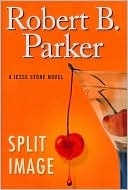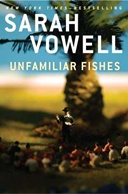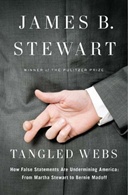“Young Lamar Jimmerson went to France in 1917 with the American Expeditionary Forces, serving first with the Balloon Section, stumbling about in open fields holding one end of a long rope, and then later as a telephone switchboard operator at AEF headquarters in Chaumont. It was there on the banks of the Marne River that he first came to hear of the Gnomon Society.” — Charles Portis, Masters of Atlantis
 |
Split Image Robert B. Parker This is the third Jesse Stone novel I’ve read in succession, and with this one I began to become irritated by the books’ formulaic nature … characters behaving in predictable ways, the ever-present teenaged girl in trouble, the always-wise Molly, Jesse’s horndog eagerness to fuck anything in skirts … and it affected my pleasure in reading it. Everything seemed less real, less plausible, than in the other Jesse Stone stories I’ve read. Since I do not want this sort of thing to interfere with my enjoyment of these books, I will space out my reading of future Jesse Stone novels. One must face the truth: these are fun stories, well told, but they will not stand up to intensive reading the way the character-driven novels of, say, Patrick O’Brian will. That is the difference between good popular literature and great popular literature.
|
 |
Unfamiliar Fishes Sarah Vowell The first time I ever heard Sarah Vowell reading her own work was on NPR, telling a story about the singer Johnny Cash. Her story was fascinating, made all the more so by her breathless, girlish voice. I couldn’t help getting swept up in her enthusiasm for the subject. I very much enjoyed The Wordy Shipmates, Sarah’s history of the Puritans settling in America, a witty and impassioned defense of America as the self-defined City on a Hill (you can read my review here). Unfamiliar Fishes is the second Sarah Vowell book I’ve read, and I enjoyed it almost as much as The Wordy Shipmates. Although I lived in Honolulu for three years, I didn’t know all that much about its early history, the coming of the missionaries and the changes they wrought on Hawaiian society and government, or the annexation of Hawaii by the USA in the late 1800s. Sarah’s history fills in the gaps, and is in turn filled with her signature trenchant and witty observations. She has a way with a story, and if only we had had history teachers like her, we’d all have been A students, baby. I particularly enjoyed this book because Sarah revealed quite a bit of her personal and family history … a descendent of Cherokees, Sarah compared the treatment of her people in the early 1800s with the treatment of the Hawaiians in the mid- to late-1800s. She’s not just relating history … she’s part of it herself, and she understands.
|
 |
Thereby Hangs a Tail Spencer Quinn This is my second review of a Chet & Bernie mystery (the earlier one I read was titled Dog Gone It, and you can read my review here). I won’t pretend these books are anything other than casual reading, but they’re sure fun. The hook is that they’re narrated by Chet, Bernie’s canine sidekick, a mixed-breed K-9 school dropout with a penchant for getting into trouble, which, twice now, has resulted in dognappings by bad guys. Chet & Bernie live in an anonymous southwest desert city with a striking resemblance to Phoenix, where Bernie hangs his shingle as a private investigator. Spencer Quinn writes very well indeed, and the books, though lighter than air, are a joy, mainly because Chet is all dog and never lets you forget it. I’ll be back for more.
|
 |
Inside of a Dog: What Dogs See, Smell, and Know Alexandra Horowitz As the title says, the book is about what dogs see, smell, and know: the senses they rely on, the way they learn, the reasons they act they way they do. It’s not a training manual, and Alexandra Horowitz, while clearly a dog lover herself, doesn’t gush — if anything, she takes a rather dry, scientific approach, leavened with just a bit of tangential humor. She’s a bit windy IMHO, and some of the pages turned only reluctantly for me; in fact, I had to muscle my way through parts of it, but my love of, and curiosity about, my own dog kept me going, and I will say that in the end it was worth the effort. I’ll never look at my dog again the way I did before, seeing her as an excitable four-legged human child, but will see her now as a dog, a creature with a rich inner life of her own. I’ve already caught myself watching my dog with the eyes of a scientific observer, seeing more in her actions and approaches to objects, food, cats, and people than I ever saw before. Inside of a Dog is a bit of a chore to read, but it absolutely changed the way I see and understand dogs and I’m glad I read it.
|
 |
Masters of Atlantis Charles Portis Charles Portis had a lot to say in his novel True Grit (you can read my review here). He wrote about American history, courage, strength of character, and the quest for justice. He had less to say in Norwood, but he had fun saying it and I had fun reading it (you can read my review here). I will never forget the characters in True Grit; I have already forgotten the characters in Norwood. Masters of Atlantis is in the Norwood camp: fun to read but forgettable. Masters of Atlantis tells the life story of curiously passive Lamar Jimmerson, Master of the Gnomon Society, and the various acolytes and ne’er-do-wells who tag along with him for the ride. Of these the most interesting by far is Austin Popper, a sort of low-budget Elmer Gantry. There are one or two female characters in supporting roles, but the main characters are all men. The book reminded me of Michael Chabon’s Kavalier & Clay, with the exception that the events in Kavalier & Clay were at least related to events that actually occurred in the middle of the 20th century; not so the events in Masters of Atlantis, which occurred nowhere at any time. Portis is such a good writer; I wish he’d write more novels like True Grit, so I could fully enjoy the pleasure of reading Portis. With novels like Norwood and Masters of Atlantis, though, pleasure is accompanied by a measure of guilt. Portis isn’t really telling you anything; you’re not learning anything; it’s all just for fun. Perhaps the fault is mine … I’ve always been a bit of a puritan. I have two more Portis novels on the shelf: Gringos and Dog of the South. I will certainly read them, but not until I’m once again in a self-indulgent mood.
|
 |
Tangled Webs: How False Statements are Undermining America: From Martha Stewart to Bernie Madoff James B. Stewart I heard a five-minute interview with the author on NPR in which he advanced his central thesis that lying and perjury in civil and criminal trials was damaging our judicial system and society at large. That’s what I expected this book to be about. Al Gore’s 2007 book, The Assault on Reason (you can read my review here), is about the disdain for clear-eyed, critical, scientific, rational thinking in America today, and how the resulting assault on reason hurts America in the world. Gore uses examples to illustrate his argument, but the argument, not the examples, is the core of his book. Stewart, on the other hand, gives us excruciatingly detailed and dryly legalistic recapitulations of the investigations and subsequent trials of Martha Stewart, Scooter Libby, Barry Bonds, and Bernie Madoff, with just a few speculative paragraphs about the consequences of lying and perjury … his argument is swallowed up by his celebrity-based and ultimately not very pertinent examples. Stewart offers little evidence to back up his assertion that perjury is harming America. Is it? All four of people he focuses on were caught out in their lies and punished for committing perjury. From what little I know, as a reasonably-aware citizen who pays attention to the news, people who lie on the stand are quite often caught and prosecuted. So: a detailed recap of four well-known investigations and trials; some editorial tsk-tsking about the impact of perjury on the judicial system and society, not backed up with evidence. Gore delivers what he promises to the reader. Stewart doesn’t. He gets lost in his examples and not only doesn’t prove his point, doesn’t seem to make any effort to do so. Disappointing … but is it perjury?
|